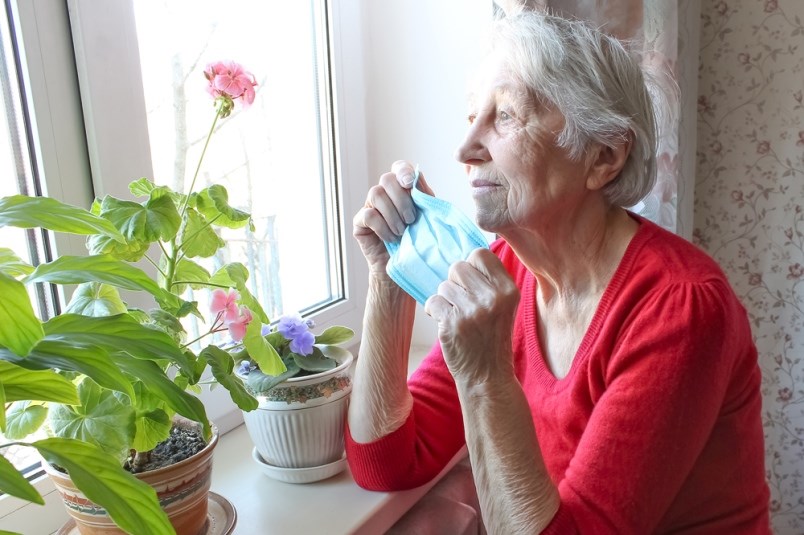Is the COVID-19 pandemic really over? Do we finally get to kick up our heels and proclaim our joy?
The good news is that deaths and hospitalizations are decreasing, transmission rates are significantly down, and many restrictions are being lifted. This is after two years to the month when we first felt the effects of the pandemic. We may want to kick up our heels as we enter this new phase, but some of us are, at best, feeling cautiously optimistic, while some of us are worried about the lifting of restrictions we have lived with for so long to keep us safe.
The pandemic caused a major disruption in our lives, especially for seniors. For some there was increased isolation, particularly in the lock down phases. Some seniors lost their connection to community as recreation and seniors centres, libraries, and other gathering places closed or reduced their programs. Even having a coffee with friends was restricted, or a meal with a friend or relative was in some phases of the pandemic cancelled or restricted in numbers. In fact, just a few months ago, we were restricted to ten people at our homes for a gathering. Certainly, this made family holiday events difficult. Notably, there were increases in mental and physical health issues as the pandemic lingered on.
Despite these disruptions, the community stepped up. Organizations rapidly and creatively set up ways to support seniors. Throughout the pandemic, the North Shore Seniors Working Group, funded in part by West Vancouver Foundation, met to strategize about how organizations could best work with seniors to keep them safe and from being isolated.
Seniors may want to rejoice as we hear the recent news that many restrictions for COVID-19 are being lifted now and over the next few months. However, things might change in the fall if rates of hospitalization increase because of increased transmission. Fall and winter are the riskiest times for seniors because of respiratory problems, flus, and colds.
Many of us remember the changing lay of the land because of the shift from reasonable to higher levels of transmission rates because of COVID and its variants. This caused significant frustrations for all of us including those trying to serve seniors safely.
The reduction or lifting of the restrictions at this time is because the level of immunity has increased, the weather allows us to get outdoors more, and deaths and hospitalizations are going down. At a recent news conference, Dr. Bonnie Henry, B.C.’s health officer, announced several measures, including but not limited to a relaxation of mask wearing for most venues, the shift for organizations from COVID safety plans to communicable disease plans; and relaxed visitation rules for long-term care facilities.
While I feel pleased about not having to mask up and show my passport, I am, as a senior, still feeling somewhat uncomfortable about my peers’ and my vulnerability, and I am fearful for those who are immunocompromised.
It appears that there will be a shift to personal responsibility regarding some of the restrictions, meaning that if you wish to continue with distancing and masking you should do so. Organizations will be left to impose some restrictions or drop all the restrictions, as allowed.
We will need to exercise kindness and respect to those who want to distance and wear masks and to those who do not. Organizations who are gearing up to offer an increased range of programs with more participants to seniors may have to offer a mix of programs for those who are comfortable with the lessening of restrictions and those who are not. As one Seniors Centre person said, “we don’t want to draw lines so that people fall away from programs”.
We want to return seniors to programs to decrease isolation and increase connectivity, and at the same time respect varying comfort levels regarding the changing nature of the pandemic.
Margaret Coates is the co-ordinator of Lionsview Seniors’ Planning Society. She has lived on the North Shore for 51 years and has worked for and with seniors for twenty-six of those years. Ideas for future columns are welcome – email [email protected].



